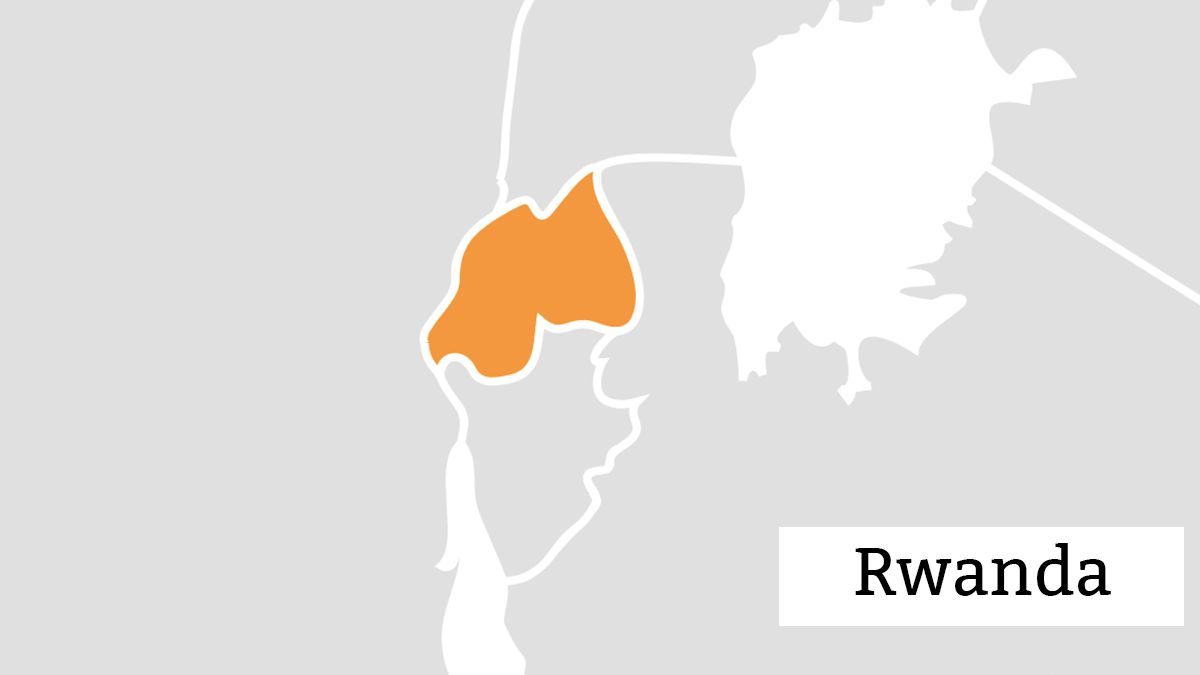
More than four out of five Rwandans live in rural areas. Many of them work in agriculture and experience higher rates of poverty than their urban neighbors. Recent transformations in the country exacerbate a strong rural-urban divide amongst the country’s population. Consequently, different regions in the country have vastly different connectivity needs not just set by geography but also by society.
The country’s digital divide has mirrored this urban-rural divide. Before the intervention by the Rwandan USAF, less than 5% of rural households had internet access, compared to over one-third of urban households. This disparity created further exclusion as the government made services available online: those without internet access could not utilise these services, and instead could be obliged to take distant journeys to a physical office for things such as filing tax declarations.
ICT has come to play a key part in Rwanda’s development plans. The 2000 document Vision 2020 and the subsequent 2016 plan, Vision 2050, both present internet access as a key means for further economic generation and as a development goal in its own right. Through this political mandate, the government has been able to designate priority attention to ICT development and enable policy programs to expand internet access generally and to help close the urban-rural divide.
Given the connectivity challenges faced by the country, the Rwandan government established a Universal Service and Access Fund (USAF) through presidential order. In addition to its public access mandate, the USAF had a further mission attached to lowering the costs of broadband for rural and for urban poor communities.
The USAF is an administrative entity which is managed by the regulator, Rwanda Utilities Regulatory Authority (RURA). It is financed by a 2% contribution from the gross annual revenues, net of interconnection payments of licensed telecommunications operators, and by international donors. Funds are distributed through a competitive bidding process, and the USAF also cooperates with other departments, such as the Ministry of Education, on occasion to enable further programs. Priorities of the USAF include providing internet connectivity to all districts in the country, telecentres, public and private universities, secondary schools, police sites, army sites, immigration border posts, private institutions and local business. Through the USAF, RURA collaborates with different government institutions to support various initiatives aimed at facilitating access and use of ICT services across the above institutions and amongst vulnerable groups.
Through the USAF, the Rwandan government has been able to invest in a number of projects to support connectivity in rural areas. In a two-part project to connect rural schools to the internet, schools within 200m of the country’s national fibre optic backbone received a fixed connection to that backbone network while more remote schools were connected to the country’s 4G LTE network. The USAF subsidised internet bandwidth for over 190 community institutions to provide affordable internet services for underserved communities. In addition, the USAF partnered with the Ministry of Agriculture to provide the equipment for digitally-enhanced training for farmers on various production methods.
The USAF has been working to bridge the gender digital divide, especially for rural women and girls. The fund supports the Ms. Geek Africa programme — a competition run by Girls in ICT Rwanda, which aims to encourage girls to participate in the fields of STEM. Girls aged 13-21, are eligible to enter the competition, which awards prizes for the most innovative technical solution that addresses some of Africa’s challenges.
Mobile broadband has become more affordable over time, as the government has been able to continue to pursue its ICT-related objectives. While in 2015, the cost of 1GB amounted to over 20% of the average Rwandan’s monthly income, today that same data package costs 3.4% – a substantial improvement to bring internet to a more affordable price point for millions. This particularly helps the country reach its universal access goals as affordability is one of the most stubborn barriers for the marginalised groups that are prioritised by Rwanda’s USAF.
Especially promising has been the rising wave of connectivity and internet use among rural households in Rwanda. Between 2013-4 and 2016-7, internet penetration among rural households grew from 4.4% to 12.2% – a marked improvement and near-tripling of connectivity. However, this number still lies far behind urban connectivity, at 38.1%. Mobile internet has been a key driver in this dynamic, now representing over 98% of rural connections. The quality of service and availability of fixed connections remain further areas for expanded digital development.
However, with the progress made to date, the Rwandan government has been able to extend additional public services with e-delivery. Many of these projects are facilitated through Irembo, a multi-purpose portal for e-government services. As of October 2018, the portal hosted 88 different government services online. Using the portal, Rwandans can now both make tax declarations and pay using the portal, an exercise which formerly required long trips and visits to multiple institutions for those living in rural communities. Also, with the deployment of wireless broadband connectivity across the country with a focus on rural areas, health care centres can get results to patients faster, significantly improving the quality of care offered.
Through the USAF, the country has been able to expand connectivity, create additional demand for internet access, support existing pillars of the country’s economy, and deliver on various social goods and government services. With priority to inclusive access to the internet – ensuring connectivity for those at the margins, such as those living in rural areas or women and girls – USAFs can help deliver on these high-level governmental objectives and support a country’s overall economic development.
Suggested Citation: Alliance for Affordable Internet (2020). “Rwanda: Spurring rural development with USAF investment.” Good Practices Database. Washington DC: Web Foundation.
